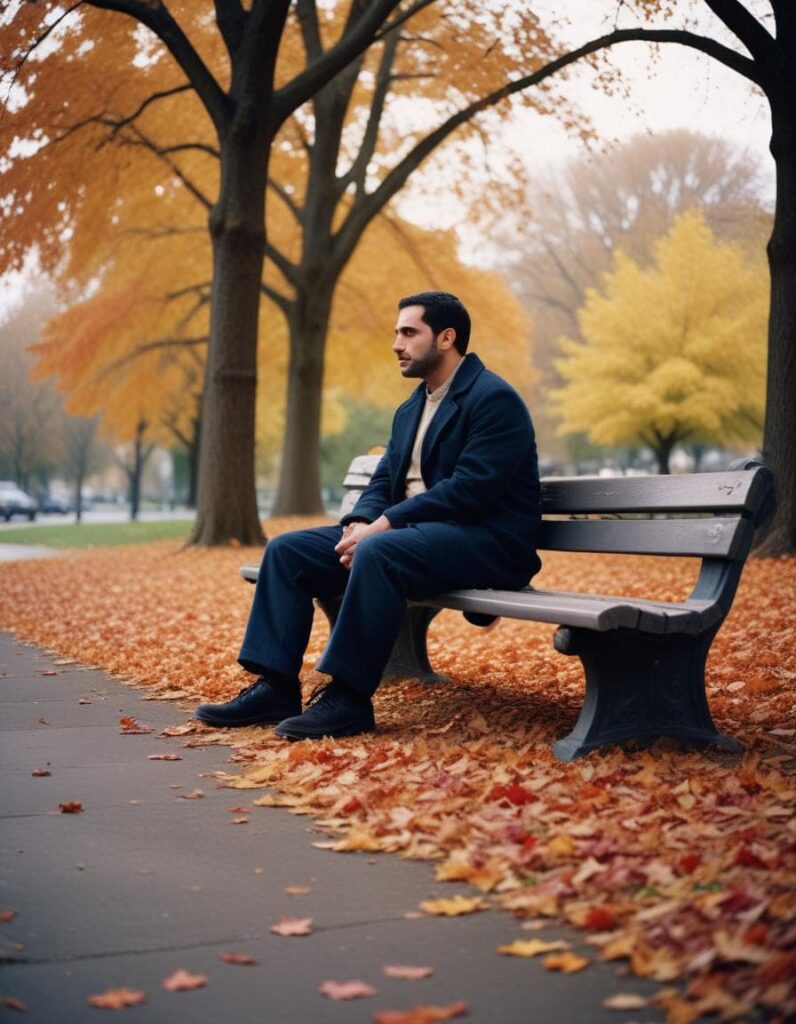What do we do when facing pain that others cause us? Facing this kind of pain causes us to turn to many different things when we are hurting.


Let’s examine the pain the apostle Paul was facing in 2 Corinthians 2:1-11 in the Bible.
For I made up my mind not to make another painful visit to you. For if I cause you pain, who is there to make me glad but the one whom I have pained? And I wrote as I did, so that when I came I might not suffer pain from those who should have made me rejoice, for I felt sure of all of you, that my joy would be the joy of you all. For I wrote to you out of much affliction and anguish of heart and with many tears, not to cause you pain but to let you know the abundant love that I have for you.
Now if anyone has caused pain, he has caused it not to me, but in some measure—not to put it too severely—to all of you. For such a one, this punishment by the majority is enough, so you should rather turn to forgive and comfort him, or he may be overwhelmed by excessive sorrow. So I beg you to reaffirm your love for him. For this is why I wrote, that I might test you and know whether you are obedient in everything. Anyone whom you forgive, I also forgive. Indeed, what I have forgiven, if I have forgiven anything, has been for your sake in the presence of Christ, so that we would not be outwitted by Satan; for we are not ignorant of his designs.
2 Corinthians 2:1-11
Facing Pain
“Pain insists upon being attended to.” wrote C.S. Lewis, but we can’t always face it.
Lewis encountered the pain of loss early at 10 years old when his mother died of cancer. But his father never recovered from the death of his wife which left Lewis feeling emotionally disconnected from his father.
Although he grew up in a Christian home, he rejected Christianity because his prayers to restore his mother’s health went unanswered as a boy. Lewis left his childhood home and became a staunch atheist. Soon to face the front lines of WWI, he watched friends lying in pain as they died around him from an enemy shell exploding nearby.
However, his war injuries and the death of his fellow soldiers couldn’t compare to the pain of losing the love of his life, Joy, to cancer.
Lewis learned that facing pain makes us realize our need for God. And that starts with forgiveness.
Since Christ faced my sin to forgive me, I can face the pain others have caused me.
Forgiveness is Challenging When Facing Pain
However, that forgiveness is challenging because:
- Forgiveness tests our obedience
- Forgiveness faces pain
- Forgiveness reaffirms love
We’re not alone in our pain as we consider forgiveness. There is one who went before us.
The Test of Turning Towards Forgiveness
Forgiveness tests our obedience because it is a decision we must turn towards. This turning is more a test of endurance than a pass/fail test.
In verse seven, Paul wants the Corinthians to turn towards the offender. They had to decide to turn and forgive the offender.
No one can make that choice for us. But, forgiveness is something we have to turn towards, if Christ has forgiven us. And we don’t naturally see it as the better option.
Turning to Express Forgiveness
After being freed from the Ravensbrück concentration camp by the German Nazis, Corrie Ten Boom turned to the world with the message of Christ’s forgiveness. What she didn’t know was that her speaking schedule would direct her towards a former Ravensbrück prison guard who had become a Christian after the war ended.
He was seeking Corrie’s forgiveness for the tortuous pain he had caused Corrie and her sister Betsy. Corrie struggled inside herself with her past pain. She struggled to turn towards him. She turned to God, silently asking God for strength.
Corrie finally turned back to the former officer, extending her hand in forgiveness and saying “I forgive you, brother! With all my heart.” “I had to do it—I knew that.” said Ten Boom.
We too must return to Chirst’s forgiveness because it comforts us in the face of others who have caused us pain. That turning back to remember how God has endured with us, forgiving us in Christ. That is the core of the test, isn’t it? How can we not forgive, when Christians have been forgiven so much?
But, will we return to Christ’s forgiveness when facing a brother who has slandered our character in anger? Will we return to Christ’s forgiveness when we face a sister gossiping about us or one of our family members? Will we turn to forgive others when it’s painful? It’s only possible because Christ forgives us.
We may never face the pain of physical torture like Corrie Ten Boom and her sister Betsy did at Ravensbrück concentration camp, but God will allow forgiveness to test our obedience because he has forgiven us in Christ.
Facing Pain Requires Comfort
Forgiveness faces pain for others sake. Remaining in verse seven, we see Paul asking the Corinthians to turn and face the collective pain that the offender has caused all of them. We know that the only way this happens is through forgiveness. But that’s not all. He adds 3 little words “and comfort him.”
This forgiveness extends comfort to those who cause us pain. That is hard. It may even feel like punishment to extend comfort to someone who has pained us deeply.
Facing Painful Memories
Rachael Denhollander was facing painful memories while testifying against a man in court who was eventually sentenced to up to 235 years in prison on consecutive sentences as a convicted serial child rapist.
He caused life long pain and punishment to Rachael and 265 other young girls, many of which were gymnasts. He was a former family physician who was also the team doctor for the United States women’s national gymnastics team.
In court, Rachael pointed out the man’s Bible:
“In our early hearings you brought your Bible into the courtroom and you have spoken of praying for forgiveness. And so it is on that basis that I appeal to you. If you have read the Bible you carry, you know the definition of sacrificial love portrayed is of God himself loving so sacrificially that he gave up everything to pay a penalty for the sin he did not commit.
In Need of Foregiveness
Rachael went on to say,
“I pray you experience the soul crushing weight of guilt so you may someday experience true repentance and true forgiveness from God, which you need far more than forgiveness from me – though I extend that to you as well.”
Rachael faced extreme pain for the sake of hundreds of other victims. She protected future victims from being targeted, wile extending the gospel and her forgiveness to this predatory man. That is a picture of comfort.
Extending anything, especially comfort, to those who have pained us seems impossible. However, a friend of mine suggested taking small steps towards extending comfort, as opposed to being tripped up by the mutual punishment of unforgiveness.
For example, extending comfort may just mean being in the same room (at a distance) with the person (as long as that is safe). The next small step could be extending a smile to someone close to you when you are no longer on speaking terms. One step further might be extending a greeting. Finally, a phone call. Small steps towards extending comfort can make a big difference.
Love – Reaffirmed through Pain
Forgiveness reaffirms love for those who cause us pain. We see in verse 4 Paul was writing while facing pain. He was writing from much affliction, anguish of heart, and many tears. Not to cause them pain but that they would know the abundant love he has for them.
It’s one thing to reaffirm your love for someone by writing a letter, but there is a greater love that can’t be reaffirmed by a wooden stylus and ink alone. Words won’t do. A life laid down perfectly is the only acceptable payment for sin.
Jesus Greater Love When Facing Pain
Paul wrote of his abundant love for the Corinthians with a wooden stylus.
But Jesus demonstrated a greater love that couldn’t be copied with wood and ink.
Paul dropped ink down on parchment in the midst of great pain. Jesus’ sweat became like great drops of blood falling from his face down to the ground, while praying in Gethsemane’s garden.
Paul reaffirmed his love for the Corinthians from afar, while facing pain. Jesus faced the pain of staring at a cup of suffering up close that was not removed, even after much prayer.
Paul wrote with many tears. Jesus prayed in agony as his disciples slept.
Jesus demonstrated a greater love for his friends than anyone ever has or ever will by obediently facing the pain of his beaten body laid down on a wooden cross to die so that his friends could be forgiven in full. He rose 3 days later to grant us forgiveness for our sins; to all who turn to Christ.
Christ Forgives – – Forgive Others
What do you turn to when hurting from the pain that others cause us? Christ’s forgiveness turns us to forgive others. Even when it tests our obedience, he positions us to face pain in order to comfort others. He reaffirms his greater love for us.
Takashi Nagai was born into a Shintoist family near Nagasaki but later came to the conclusion that the idea that humans have a soul was a fantasy aimed at deceiving simple people. Later in life while studying to become a physician, he received a telegram from his father to come home quickly.
Takashi’s mother was facing the pain of a stroke and couldn’t speak. Kneeling beside her deathbed, he turned to face her. There was something about the look she gave him that caused him to think about life after death. And for the first time in his life, he began to learn about God by reading Pascal’s thoughts on religion while he lived with Christian farmers who lived out what he was reading.
The pain of a severe earache deteriorated into single sided deafness, destroying his plans to practice ordinary medicine. He switched to the new study of radiology as he married the farmer’s daughter named Midori and grew in his faith.
Forgiving Others in the Face of Tragedy
Fast forward to 1945 when a bright flash knocked Takashi backwards with shards of glass painfully lodged in his body. The atomic bomb of August 9th, had just exploded.
Bleeding from his head, he cared for people’s wounds all day, Takashi searched for his wife in the mountains. He turned to see the carbonized remains of his wife and knew exactly what two words she would have said to him.
It was those two words that caused Takashi to encourage Christians grieving the loss of their families to abandon themselves to God’s forgiveness in Christ. Takashi faced Christ’s forgiveness and from that forgiveness, he turned to forgive those who had caused him the greatest pain because of the greater love of Christ. We can forgive because in Christ we are forgiven.



 Our Survival Depends on Your Promise!
Our Survival Depends on Your Promise!